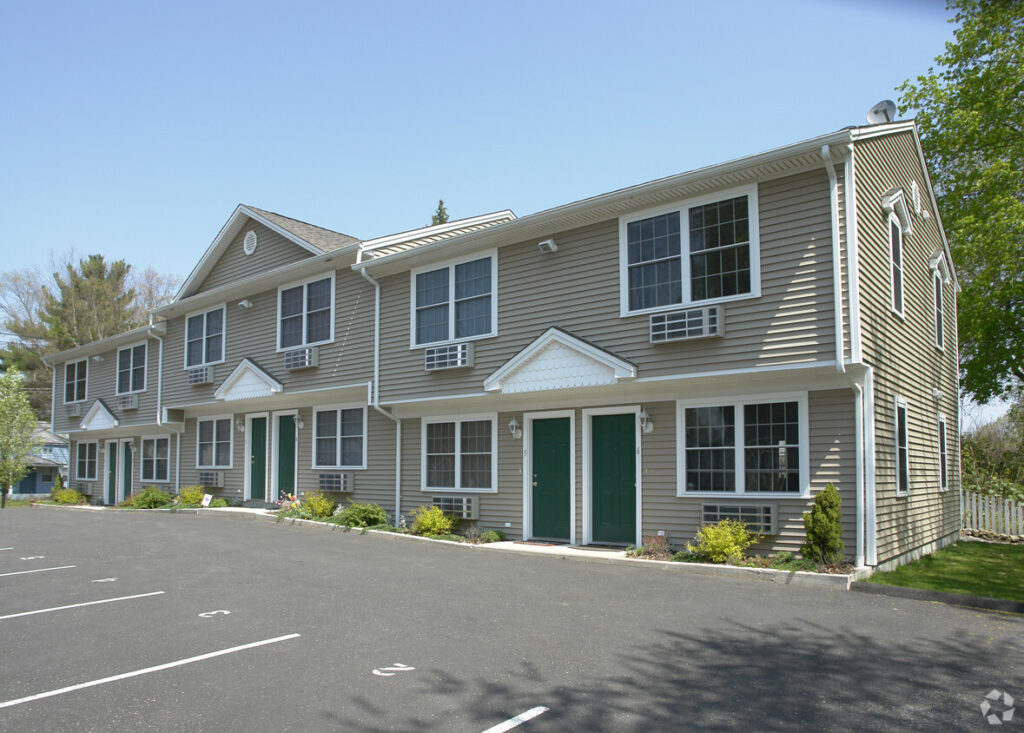
$1,000,000 to $999,000
Loan Type Commercial Loan
Property Type Automotive, Hotel, Industrial, Land Non-Entitled, Medical Office, Mobile Home Park, Multi Family, Office, Retail, Self-Storage, Senior, Strip Center








Connecticut is a small state in the Northeastern region of the United States, but it has a thriving commercial real estate market that attracts investors from all over the world. The state has a diversified economy with a strong presence in industries such as finance, healthcare, and manufacturing. This article will provide a comprehensive guide for investors interested in Connecticut’s commercial real estate market, including an overview of the market, top cities for investment, key trends, investment strategies, and challenges.
Connecticut’s commercial real estate market is composed of four primary asset classes: office, retail, industrial, and multifamily. The state’s major metropolitan areas include Hartford, New Haven, Bridgeport-Stamford, and Waterbury. These areas offer a variety of commercial real estate opportunities, including high-rise office buildings, shopping centers, manufacturing facilities, and apartment complexes.
The top cities for commercial real estate investment in Connecticut include Hartford, New Haven, Stamford, and Bridgeport. Hartford is the capital city of Connecticut and has a large concentration of office buildings, particularly in the downtown area. New Haven is home to Yale University, which provides a steady demand for multifamily properties. Stamford is one of the wealthiest cities in Connecticut and has a growing office market. Bridgeport is the largest city in Connecticut and offers a diverse mix of industrial, office, and multifamily properties.
One of the key trends shaping Connecticut’s commercial real estate market is the growing demand for multifamily properties. The state’s population is growing, and many younger professionals are choosing to live in urban areas near major employers. Another trend is the increase in demand for industrial properties, particularly in the e-commerce and logistics sectors. Connecticut is strategically located near major transportation routes, making it an attractive location for warehouse and distribution centers.
Investors looking to enter Connecticut’s commercial real estate market should consider a variety of strategies, including value-add investments, ground-up development, and property renovation. Value-add investments involve acquiring properties that require renovations or upgrades to increase their value. Ground-up development involves building new properties from scratch. Property renovation involves acquiring properties that require minor renovations or upgrades to increase their value.
Connecticut’s commercial real estate market faces several challenges, including high taxes, strict regulations, and a shortage of skilled labor. The state’s high taxes can make it difficult for investors to achieve the returns they desire. Strict regulations can also increase the cost of doing business in Connecticut. Finally, the shortage of skilled labor can make it difficult to attract businesses that require specialized expertise.
Connecticut’s commercial real estate market offers a variety of opportunities for investors, including office, retail, industrial, and multifamily properties. The state’s major metropolitan areas, including Hartford, New Haven, Stamford, and Bridgeport, offer a diverse mix of commercial real estate opportunities. Investors looking to enter Connecticut’s commercial real estate market should consider a variety of strategies, including value-add investments, ground-up development, and property renovation. However, investors should also be aware of the challenges facing Connecticut’s commercial real estate market, including high taxes, strict regulations, and a shortage of skilled labor.
Are you a lender who wants a free or premium listing on LendDing? Get started today!
Or Contact Us if you have a loan inquiry or question.